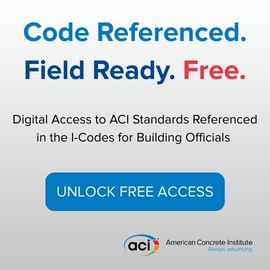
The Critical Necessity of Fuel Gas Inspections (& Fuel Gas Inspection Protocol Survey)
Fuel gas inspections are the frontline defense against potential disasters. This proactive approach not only enhances safety but also promotes energy efficiency, helping to lower utility costs.
In today’s energy-driven world, the importance of fuel gas inspections cannot be overstated. These inspections are not just a regulatory checkbox, but a vital safeguard that can prevent catastrophic explosions and protect lives.
The devastating impact of gas-related incidents underscores the importance of adopting rigorous inspection protocols and understanding the frameworks that govern them.

Understanding Fuel Gas Types
Fuel gas encompasses a variety of gaseous fuels used in residential, commercial and industrial applications for heating, cooking and energy generation.
The most common type is natural gas, primarily composed of methane, which is widely utilized due to its efficiency and relatively low cost. Liquefied propane (LP), another prevalent fuel gas, is often used in areas where natural gas is not available.
Additionally, emerging fuel gas blends, such as hydrogen-enriched natural gas, aim to reduce carbon emissions while maintaining performance. Mixed gases, including LP and natural gas combinations, are also used in various applications, requiring proper inspection protocols to ensure safe use and compliance with safety standards.
Understanding the different types of fuel gas is essential for implementing effective inspection strategies that safeguard against potential hazards.
Why Fuel Gas Inspections Are Indispensable
Fuel gas inspections are the frontline defense against potential disasters. Regular inspections can identify leaks, faulty installations and aging systems that could lead to severe consequences if left unchecked. By identifying issues early, corrective actions can be taken to ensure the safety of homes, businesses and communities. This proactive approach not only enhances safety but also promotes energy efficiency, helping to lower utility costs.
The frequency of gas explosions in the United States starkly illustrates the dire consequences of neglecting these inspections. With approximately 300 gas explosions occurring each year, resulting in loss of life and widespread property damage, the need for vigilant oversight is more pressing than ever.
One of the most haunting examples is the 1937 New London School gas explosion in Texas, a tragedy that claimed nearly 300 innocent lives and forever reshaped safety standards in gas usage. In response to this catastrophe, mercaptan was added to fuel gas systems to create a detectable odor, allowing individuals to identify gas leaks before they lead to disaster.
On March 24, 2023, natural gas transported through a UGI Corporation–owned pipeline leaked into and accumulated in the basement of an R.M. Palmer Company candy factory building in West Reading, PA. The gas ignited, causing an explosion and fire that killed seven Palmer employees, injured ten people and destroyed the building. Another Palmer building, as well as an adjacent apartment building, was also severely damaged. Three families were displaced from the apartment building.
Adherence to the International Fuel Gas Code®
To mitigate risks, the International Fuel Gas Code® (IFGC®) was established to provide essential safety measures for the installation of fuel gas systems. The key inspection requirements of the IFGC® include:
- Compliance with Installation Standards: All gas installations must be executed according to stringent guidelines to ensure safety from the outset.
- Leak Testing: Pressure tests are mandated to guarantee that gas systems are airtight and free of leaks.
- Ventilation Requirements: Adequate ventilation is crucial to avert the accumulation of hazardous gases indoors.
- Appliance Clearance: Proper spacing around gas appliances is necessary for safe operation and maintenance.
- Regular Inspection of Infrastructure: Ongoing evaluations of gas pipelines, fittings and valves are essential to confirm their integrity and functionality.
Best Practices and State Mandates for Fuel Gas Inspections
Adopting best practices in fuel gas inspections is not just recommended; it’s imperative for safeguarding lives and maintaining compliance.
Key strategies include providing regular training for inspection personnel, strictly adhering to the latest safety standards and meticulously documenting all inspection results.
States such as Texas have taken significant steps to protect our most vulnerable populations. Recognizing the importance of ensuring safety in schools and daycares, Texas mandates biannual testing of fuel gas systems in these critical environments. This proactive measure not only helps identify potential hazards before they become catastrophic, but also fosters a culture of safety and vigilance within our communities.
An essential aspect of maintaining safety standards is the involvement of Authority Having Jurisdiction (AHJ) in the inspection and oversight process. AHJs play a crucial role in ensuring compliance with regulations and providing guidance to inspectors. They establish protocols for inspections and ongoing monitoring, emphasizing the importance of regular assessments, follow-up visits and corrective actions where necessary. By enforcing these regulations, AHJs ensure that all inspection personnel are held accountable and equipped with the latest information on safety practices.
Effective collaboration between AHJs and inspectors enhances the proactive approach to safety. Regular communication, sharing insights on emerging risks and updating inspection criteria are vital for staying ahead of potential dangers. This collective effort not only reinforces the importance of compliance but also serves as a reminder that safety is a communal responsibility.
By fully embracing these best practices and regulatory requirements, we are investing in a brighter, safer future for our children, teachers and caregivers.
Survey: Fuel Gas Inspection Protocols
Fuel gas inspections are crucial for compliance and, more importantly, for ensuring our safety and well-being.
ICC’s Plumbing, Mechanical, Fuel Gas, Swimming Pool & Spa and Private Sewage Disposal (PMG) team has put together a survey to determine the types of inspection protocols jurisdictions have in place for fuel gas permitting and inspections.
Your input will help identify training needs and ICC support for fuel gas installations and inspections. This survey will take less than five minutes to complete and can be accessed, here.
To access any of ICC’s PMG-related resources, click here. To subscribe to the PMG newsletter, click here.







